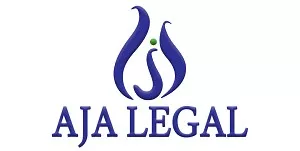The Insolvency and Bankruptcy Code (Amendment) Ordinance, 2019 ("Ordinance") was promulgated on December 28, 2019 to amend the Insolvency and Bankruptcy Code, 2016 ("Code"). The below comparative chart highlights the legal position prevailing before and after the Ordinance.
| S. No. | Amended Provisions of the Code | Legal position prevailing before Ordinance | New legal position |
| 1. | Section 5 -Definitions | Section 5(12) defines
"insolvency commencement date" as the date of admission
of application for initiating the Corporate Insolvency Resolution
Process ("CIRP") by the National Company Law Tribunal
("Adjudicating Authority") under Sections 7, 9 or 10, as
the case may be. The proviso thereafter to Section 5(12) (which was inserted in the Code with effect from June 6, 2018) states that where the interim resolution professional ("IRP") is not appointed in the admission order, the insolvency commencement date shall be the date on which such IRP is appointed by the Adjudicating Authority. |
The proviso to Section 5(12) has been omitted. |
| Section 5(15) defines "interim finance" to mean any financial debt raised by the Resolution Professional ("RP") during the CIRP period. | The words "and such other debt as may be notified" has been inserted within the definition of "interim finance" | ||
| 2. | Section 7 –
Initiation of CIRP by financial creditor. |
Section 7(1) states that
a financial creditor either by itself or jointly with other
financial creditors, or any other person on behalf of the financial
creditor (as may be notified by the Central Government) may file an
application before the Adjudicating Authority for initiating CIRP
against a corporate debtor when a default has occurred. An Explanation is also given to the said section to clarify the meaning of default. |
After Section 7(1), the
provisos being inserted before the Explanation through the
Ordinance provide for: - Proviso 1- For financial creditors referred to in Section 21(6A) (a) and (b), the Section 7 application is required to be filed jointly by at least 100 creditors in the same class or 10% of the total number of such creditors in the same class, whichever is less; Proviso 2- For homebuyers, the Section 7 application is required to be filed jointly by at least 100 allottees under the same real estate project or 10% of the total number of such allottees, whichever is less. Proviso 3- The Section 7 applications filed by the financial creditors mentioned in the aforesaid provisos, which are presently pending before the Adjudicating Authorities, have to be modified within 30 days of the date of ordinance, failing which the application will be deemed to be withdrawn. |
| 3. | Section 11 – Persons not entitled to make application | Section 11 states that certain persons, such as a corporate debtor undergoing CIRP, cannot file an application to initiate CIRP. An Explanation to the Section provides that 'corporate debtor' includes a corporate applicant in respect of such corporate debtor, for the purposes of this Section. | Explanation-II has been inserted to provide an important clarification that the corporate debtor mentioned in the Section is not barred from initiating CIRP against another corporate debtor. |
| 4. | Section 14 – Moratorium | Section 14(1) provides that the Adjudicating Authority, on the insolvency commencement date, shall declare moratorium prohibiting certain actions. | An Explanation has now been inserted after Section 14(1), clarifying that a license, permit, registration, quota, concession, clearances, or a similar grant or right given by the Central Government, State Government, local authority, sectoral regulator or any other existing legal authority shall not be suspended or terminated on the grounds of insolvency. However, there should be no default in payment of dues arising during the moratorium period. |
| Section 14(2) states that the supply of essential goods or services to the corporate debtor shall not be terminated or interrupted during moratorium period. | Sub-section (2A) has been inserted which states that where the IRP/RP considers the supply of goods or services critical to protect and preserve the value of the corporate debtor and manage the operations of such corporate debtor as a going concern, then the supply of such goods or services shall not be terminated or interrupted during the moratorium period, except where such corporate debtor has not paid dues arising from supply during the moratorium period or in such circumstances as may be specified. | ||
| Section 14(3)(a) states that the provisions of moratorium will not apply to such transactions as may be notified by the Central Government in consultation with any financial regulator. | Section 14(3)(a) has now
been substituted to provide that the provisions of moratorium will
not apply to such transactions, agreements or other
arrangements as may be notified by the Central
Government in consultation with any financial sector regulator
or any other authority. |
||
| 5. | Section 16 – Appointment and tenure of IRP | Section 16(1) states that the Adjudicating Authority will appoint the IRP within 14 days from insolvency commencement date. | The amended Section 16(1) provides for the appointment of IRP on the insolvency commencement date itself. |
| 6. | Section 21 – Committee of Creditors ("CoC") | Section 21(2) states that the CoC will comprise all financial creditors of the corporate debtor. The second proviso to Section 21(2) states that that the first proviso (related party of the corporate debtor not to be a part of CoC) will not apply to a financial creditor, regulated by a financial sector regulator, if it becomes a related party of the corporate debtor solely on account of conversion or substitution of debt into equity shares or instruments convertible into equity shares, prior to the insolvency commencement date. | The second proviso to Section 21(2) has been further amended to include "or completion of such transactions as may be prescribed" before the words "prior to the insolvency commencement date". |
| 7. | Section 23 – RP to conduct CIRP | Section 23(1) states that the RP shall conduct the entire CIRP and manage the operations of the corporate debtor during the CIRP period. The proviso to Section 23(1) (which was inserted in the Code with effect from June 6, 2018) states that where the resolution plan has been submitted to the Adjudicating Authority for approval, the RP shall continue to manage the operations of the corporate debtor after the expiry of the CIRP period until an order of approval of resolution plan is passed by Adjudicating Authority. | The existing proviso to Section 23(1) now stands substituted with a new proviso which states that the RP shall continue to manage the operations of the corporate debtor after the expiry of the CIRP period, until an order of approval of resolution plan (u/s 31(1) of the Code) or appointment of liquidator (u/s 34) is passed by the Adjudicating Authority. |
| 8. | Section 29A – Persons not eligible to be resolution applicant | Section 29A provides a list of persons who are not eligible to submit a resolution plan. | The Ordinance seeks to amend the meaning of "related party" provided in Explanation I to the second proviso in Section 29A(c) and second proviso to Explanation I in Section 29A(j). This amendment, which is on the lines of amendment to second proviso to Section 21(2) (as aforesaid), states that the expression "related party" shall not include a financial entity which has become a related party, inter alia, "on completion of such transactions as may be prescribed". |
| 9. | Section 32A-
Liability for prior offences, etc. (NEW PROVISION) |
Section 32A
has been inserted after Section 32 in the Code to clarify the legal
position on the liability for offences of the corporate debtor
committed prior to commencement of CIRP.
|
|
| 10 | Section 227 – Power of Central Government to notify financial sector providers etc. | Section 227 gives power to the Central Government to notify financial service providers or categories of financial service providers, in consultation with the appropriate financial sector regulators, for the purpose of their insolvency and liquidation proceedings, notwithstanding anything to the contrary examined in this Code or any other law for the time being in force. | The Ordinance substitutes the words "examined in this Code" contained in Section 227 with "contained in this Code". Further, an Explanation has been inserted to clarify that the insolvency resolution and liquidation proceedings for financial service providers or categories of financial service providers may be conducted with such modifications and in such manner as may be prescribed. |
| 11 | Section 239 – Power to make rules | Section 239 empowers the Central Government to make rules for carrying out the provisions of this Code on, inter alia, the matters mentioned in Section 239(2), from (a) to (zn). | The Ordinance inserts clauses (fa) to (fc) after Section 239(2)(f) to empower the Central Government to make rules on transactions inserted vide this Ordinance in second proviso to Section 21(2), Explanation I to the second proviso in Section 29A(c) and second proviso to Explanation I in Section 29A(j) (such transactions which would not make the financial creditor a related party of the corporate debtor). |
| 12 | Section 240 – Power to make regulations | Section 240 empowers IBBI to make regulations consistent with the Code and the rules thereunder, for carrying out the provisions of this Code on, inter alia, the matters mentioned in Section 240(2), from (a) to (zzzc). | The Ordinance inserts clause (ia) after Section 240(2)(i) to empower the IBBI to make regulations on circumstances in which supply of critical goods or services may be terminated or interrupted during moratorium under Section 14(2A) |
The content of this article is intended to provide a general guide to the subject matter. Specialist advice should be sought about your specific circumstances.


